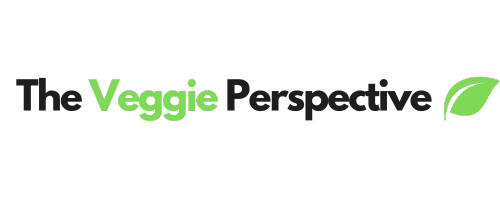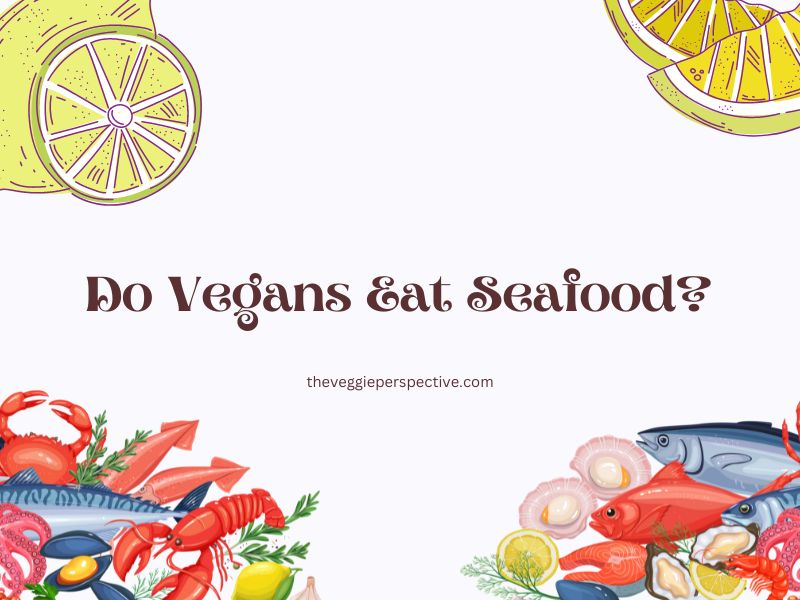If you’re a vegan or simply curious about veganism, you may have asked yourself the question: Do Vegans Eat Seafood? The answer is no – vegans don’t eat seafood for one simple reason: Seafood comes from animals, and vegans do not consume any animal products.
So what differentiates veganism from vegetarianism? Vegetarians refrain from eating meat (including poultry, fish, and seafood). Vegans, however, exclude all animal products from their diet, even eggs and dairy. To understand why vegans don’t eat seafood, let’s explore why they don’t eat any animal products.
Most vegans are driven by ethical reasons: they oppose the poor treatment of animals and the environmental destruction caused by animal agriculture. By abstaining entirely from animal products, vegans can choose to not contribute to the demand for such products. In this case, that means fully abstaining from seafood consumption.
In some cases, vegans may have medical conditions or allergies that make seafood consumption unadvisable. For instance, shellfish like crab, lobster, and shrimp contain high levels of cholesterol and saturated fat, which can increase the risk of heart disease in some people.
Although seafood isn’t included in a strictly vegan diet, seafood is often considered a healthier alternative to other animal products, since fish and shellfish are relatively low in saturated fat. They are also an excellent source of lean protein and naturally occurring omega-3 fatty acids, which have anti-inflammatory properties and may boost cognitive performance and overall health.
Fortunately for vegans, there are plenty of healthy meat-free alternatives that are not only delicious but also nutritious. For example, plant-based proteins like tempeh, chickpeas, lentils, quinoa, and nuts provide essential amino acids and fiber. Furthermore, fortified plant milk like soy, almond, and coconut can provide calcium and vitamin D.
It’s also important to consider that veganism is a lifestyle, not just a diet. Vegans avoid any products or activities that exploit animals or the environment. This often stretches beyond the realm of food and into fashion choices, cosmetics, and other everyday items.
Ultimately, veganism is a personal journey and requires thoughtful consideration and education about one’s lifestyle choices. If you want to learn more about veganism, the internet is a great resource. There are vegan blogs, podcasts, and websites with lots of information, support, and inspiration.
Are you counting your carbs? Wondering how many are in a biscuit? Depending on the type, there can be anywhere from 15 to 20 carbs per biscuit. To make the healthiest choice, look for low sugar and whole-grain options.
At the end of the day, a vegan diet does not include any animal products, including seafood. Whether you’re considering veganism as a dietary and lifestyle choice, or simply want to reduce your environmental impact, myriad delicious and nutritious plant-based alternatives provide essential nutrients without compromising ethics and health.

Veganism and Seafood
If you’re vegan or have recently gone vegan, you may be wondering if there’s any type of seafood that you can still enjoy. While it’s true that vegan diets don’t typically include any animal-based products, you may be surprised to know that there are a few delicious seafood options that you can include in your meal plans!
There are vegan “seafood” options that not only taste great but are also good sources of vital nutrients like zinc, iodine, omega-3 fatty acids, and much more. This means that you can still enjoy the flavors and textures of seafood – without any animal involvement.
- The first seafood option that vegans can try is plant-based seafood. Products like fishless tuna, seitan-based shrimp, and vegan “crab meat” are becoming increasingly popular as vegan seafood options. They’re made using wheat proteins such as glute and seitan and have a texture that is surprisingly close to the real deal. Plant-based seafood options are low in fat and cholesterol and are also a source of protein.
- Another seafood option that vegans can enjoy is seaweed. Seaweed is an edible alga that has been a part of Asian cuisine for centuries. It’s highly versatile and can be enjoyed as a nutritious snack, as a topping on salads or soups, or as a seafood-replacement in sushi rolls. Seaweed is full of vitamins and minerals, as well as healthy omega-3 fatty acids.
- One more seafood option that vegans can enjoy is tempeh. Tempeh is a traditional Indonesian food made from fermented soybeans. It has an umami, a nutty flavor, and a slightly chewy texture. It’s also a good source of plant-based protein and makes a great vegan seafood substitute in dishes like vegan “tuna” salad and sandwiches.
Finally, vegans can also enjoy a more traditional vegan substitution: jackfruit! Jackfruit is a tropical fruit that has recently gained popularity as a vegan seafood alternative because of its unique texture and flavor. When cooked, jackfruit takes on a mild sweetness and a meaty texture. It’s perfect for vegan “crab cakes” or vegan fish tacos!
Mushrooms are a delectable tasty treat, but do they make you gassy? The answer is yes – eating mushrooms can increase your risk of excessive gas. To minimize this side effect, try eating only small amounts of mushrooms and drinking plenty of water with your meal.
As you can see, there are plenty of delicious vegan seafood options available. With a little creativity, you can enjoy all the flavors and textures of seafood without having to compromise your vegan lifestyle. So, if you’ve been missing out on the flavor of seafood, give one of these vegan seafood options a try and experience something delicious and unique!
I have always loved cooking and discovering new flavors. My hobby gradually grew into a serious hobby and now I write about food professionally on my blog. For almost a year now, I’ve been sharing my thoughts with the world and helping many people find their perfect “recipe” 🙂

